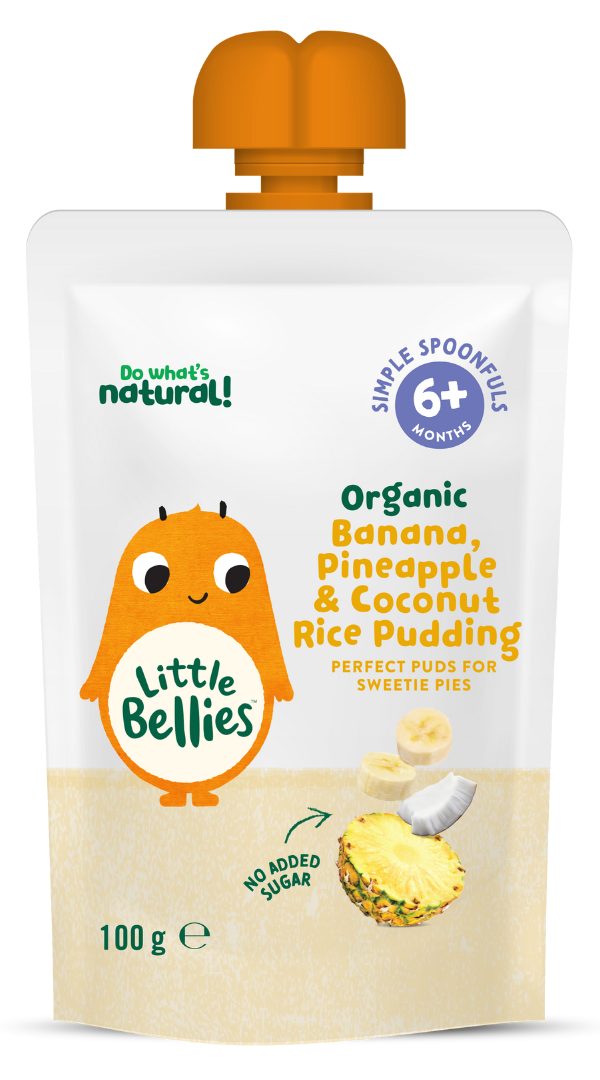Introducing finger foods is a big step that blends physical skills, curiosity, and developmental timing. Parents often search for convenient, age-appropriate options that support healthy growth. One popular item on store shelves is baby puffs, often labeled as organic and marketed as a nutritious choice for babies.
These bite-sized treats appear to offer both ease and safety during the transition from milk to solids. However, a closer look is necessary to determine if they are truly beneficial. Among available baby snacks, organic puffs are widely chosen for their simple ingredients and melt-in-the-mouth texture. Their appeal lies in both their functionality and formulation.
Many of these snacks are enriched with nutrients and made from organically grown produce and grains. With a growing demand for safer, cleaner food products, organic baby puffs offer an accessible and balanced option for infants beginning their solid food journey. This article covers the key benefits of organic baby puffs and their place in a healthy infant diet.
Nutritional Support for Growing Bodies
Organic baby puffs are often fortified with essential nutrients needed during infancy. Many include iron, B vitamins, and zinc—critical for early cognitive and physical development. While these snacks are not intended to replace entire meals, they contribute to a well-rounded nutritional profile when used alongside breast milk, formula, and other solids.
High-quality organic baby puffs often contain whole-grain bases such as quinoa, brown rice, or oats. These provide a mild energy source and dietary fiber, which support digestion. Additionally, some varieties incorporate fruit and vegetable powders, introducing gentle flavors that expand taste preferences.
Encourages Safe and Independent Eating
These snacks are designed with safety in mind. Their light, airy texture allows them to dissolve quickly in the mouth, significantly lowering the risk of choking. This makes them ideal for babies who are just beginning to self-feed but are not yet ready for chewy or textured foods.
These snacks promote fine motor skills, hand-eye coordination, and self-feeding confidence. The small, uniform shapes are easy for tiny fingers to grasp. By practicing with puffs, infants gain the skills needed to transition to a wider variety of table foods. This stage in development is vital for independence at mealtimes, and baby snacks and puffs support this transition with minimal risk.
Helps Make Cleaner Choices With Transparent Ingredients
One of the strongest advantages of choosing organic baby puffs lies in their ingredient transparency. Certified organic products are grown without synthetic pesticides, genetically modified organisms (GMOs), or artificial additives. This makes them a cleaner choice for sensitive and developing bodies.
Parents often express concern over additives, preservatives, and hidden sugars in packaged foods. These snacks for infants typically avoid these components, using only natural ingredients and mild, organic flavor sources. Some products are also free from common allergens such as gluten, dairy, or soy, further expanding their suitability for babies with dietary sensitivities.
Role in a Balanced Infant Diet
Organic baby puffs are often fortified with essential nutrients needed during infancy. Many include iron, B vitamins, and zinc—critical for early cognitive and physical development. While these snacks are not intended to replace entire meals, they contribute to a well-rounded nutritional profile when used alongside breast milk, formula, and other solids.
Moderation remains essential, but organic baby puffs can undoubtedly earn a place at the table. They balance ease, safety, and nutritional contribution, supporting healthy development while adapting to a modern, on-the-go lifestyle. Caregivers can introduce these snacks alongside soft fruits, mashed vegetables, or iron-rich purées to build a diverse and nourishing diet.
Why Choose an Organic Brand
Selecting a reputable brand ensures that the promised organic standards are upheld. Trusted manufacturers conduct third-party testing, uphold non-GMO verification, and avoid unnecessary fillers. Clear labeling and nutritional breakdowns are signs of brand transparency and product integrity. Brands that invest in quality assurance help minimize the risk of exposure to harmful substances. Choosing well-reviewed options also supports consistent nutritional value with every serving.
Some brands go further by sharing sourcing details, using sustainably farmed ingredients, and offering puffs tailored to various developmental stages. Parents can feel confident that the snack supports both health and quality by choosing companies committed to high manufacturing and ethical standards. Exploring customer reviews, certifications, and product guides can help identify the best brand for each infant’s needs.
Feeding choices made in infancy often echo throughout a child’s early development. While caregivers aim for variety and whole foods, there is also value in incorporating thoughtful, convenient options. Organic baby puffs represent a responsible middle ground—offering safety, simplicity, and nutrition in every small bite. Rather than viewing them as mere snacks, they can be recognized as stepping stones that assist infants in building a healthy and confident relationship with food.











